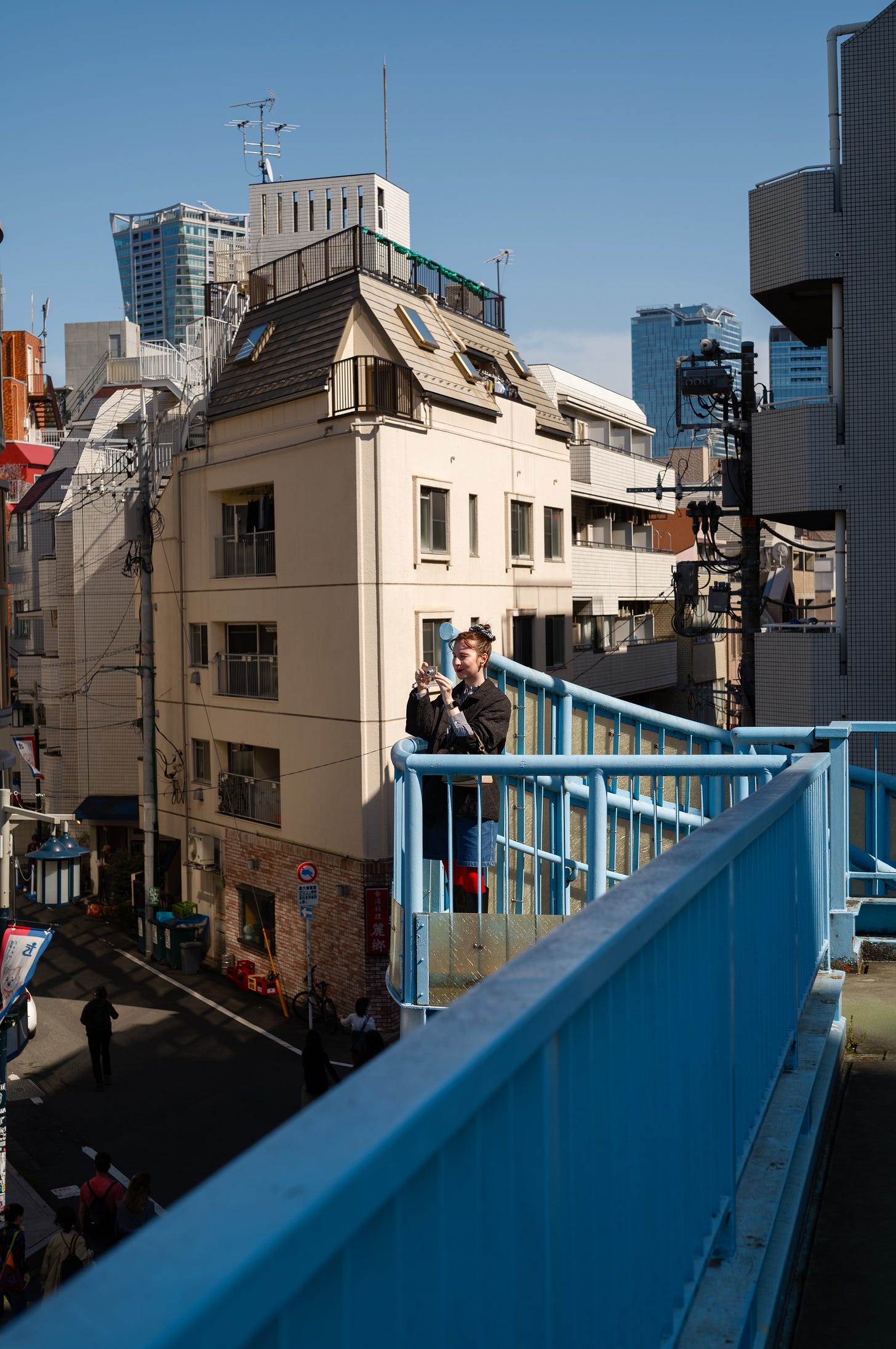Spending several months in my favorite place on earth has done something to me. Who would have seen that coming?
I knew that coming here—trying to grow roots while knowing I’d eventually have to pull them out—would leave a mark on me. And it did.
I feel it when I step outside the apartment and look up to see what shade the sky has chosen that day. I feel it when I sip my daily matcha, which has grown familiar and warm—even when I drink it iced. I feel it in my bones. Not just because I walk a lot or move often, but because change feels heavy—while also being light as a feather.
Knowing that my time here is coming to an end is scary. And it’s a relief. There was always an expiration date on this little adventure of mine. Just because the roots have grown deeper and faster than expected doesn’t mean I can leave my life back home behind.
But I will look over my shoulder. I will look back. And mourn. Because how could I not? It’s been a time so special, so rare, so unique, that I know—no matter how much I try to replicate routines and activities at home—they will feel different. Every place has its own magic you simply can’t copy and paste. Unfortunately.
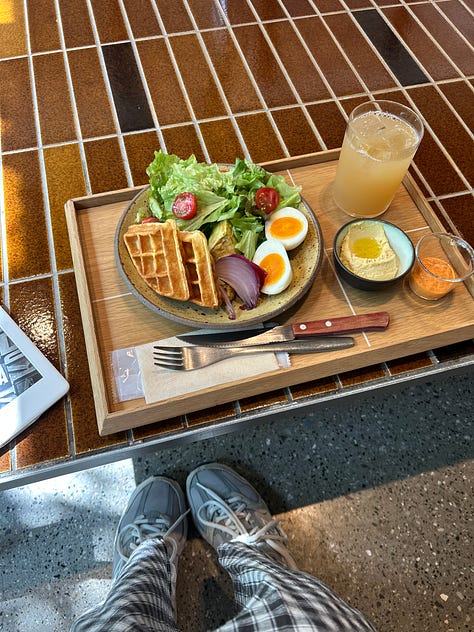
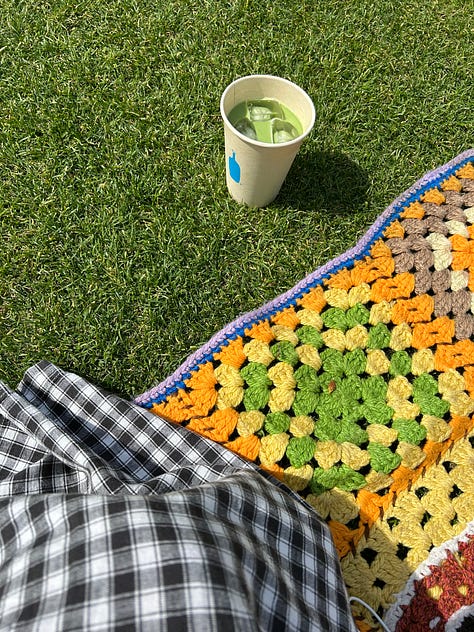
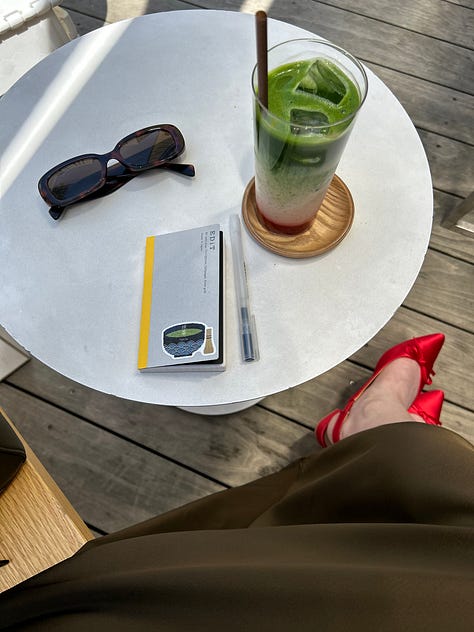
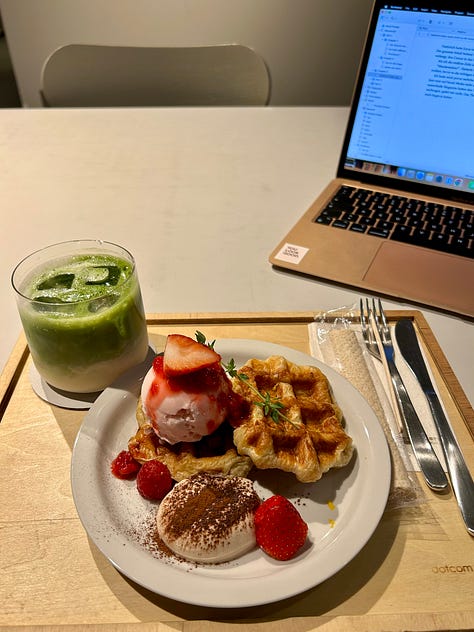
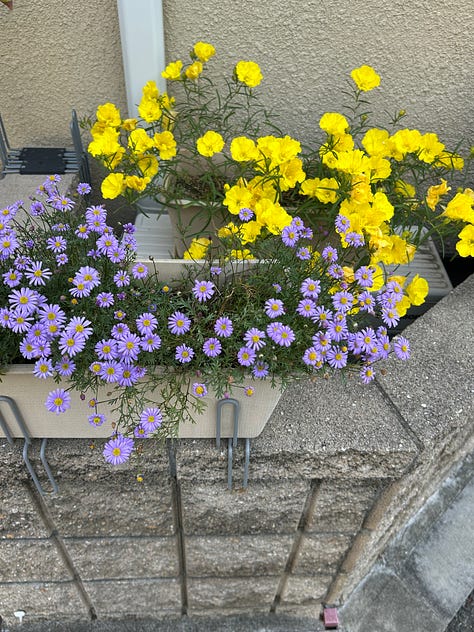
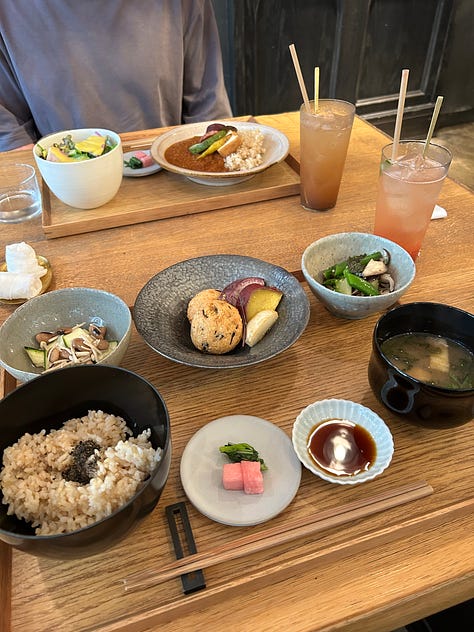
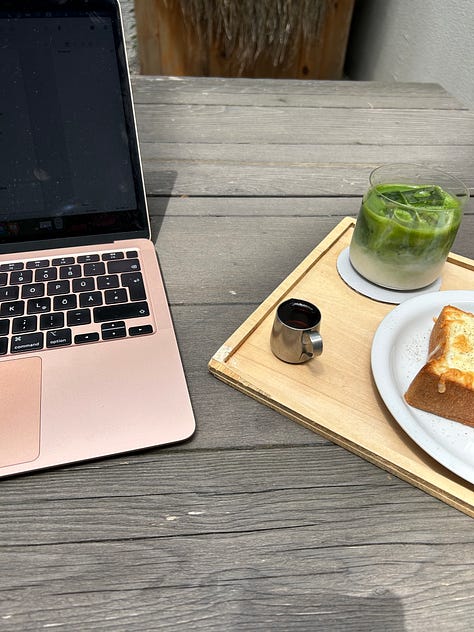
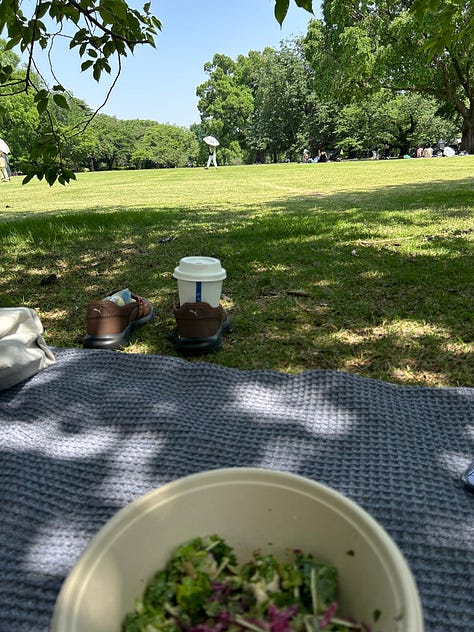
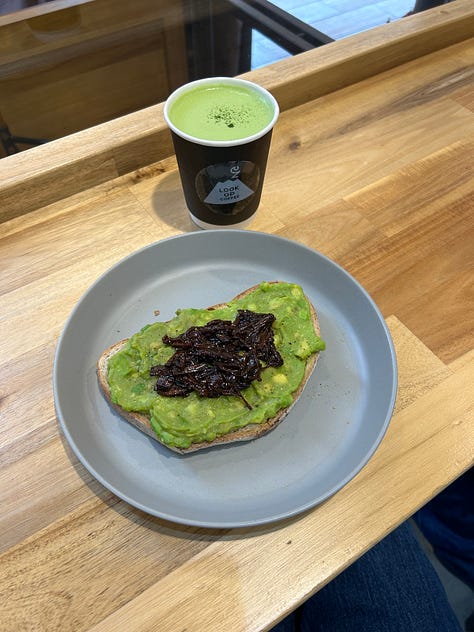
What I will try to do is remind myself of the beauty I experienced in the everyday. No matter how boring my days may have seemed, I enjoyed them. Some of them were actually my favorites.
Life is shifting. At least, that’s how it feels. Leaving behind a life I dreamt of for years, only to return to the one I dreamt of in what now feels like a different lifetime—it shakes you to your core. Even though I tried to stay present, to enjoy the view, I found myself thinking. Wondering. Worrying. What’s next? Where do I fit in? Who do I want to be?
Old thought patterns tried to resurface—despite years of working to leave them behind. It seems that no matter how far you’ve come, the cycle might still try to pull you back in when you least expect it. The question “What now?” had me in its grip.
To make the most of our final days in Tokyo, I created a bucket list. One item was a toilet tour. Maybe you’ve heard of The Tokyo Toilet—a project initiated for the 2020 Olympics, which built public restrooms in Shibuya to encourage the use of public spaces like parks and community areas. When I first heard about these stylish toilets, I wanted to visit some of them and admire the architecture. It may sound strange to walk from one restroom to another, but it turned out to be a beautiful little adventure—some of the designs blew me away.
That same week, I watched the movie Perfect Days, which follows Hirayama, a toilet cleaner working for The Tokyo Toilet, through his mundane daily routines. With barely any dialogue, we witness the joy he finds in small things as we follow him through the city. It’s visually stunning—and yes, some of those architectural restrooms make an appearance.
Within ten minutes of starting the film, I felt my throat tighten. I was immersed. I felt it. I understood.
My entire working life, I’ve been surrounded by achievers—been one myself. The thrill of climbing the ladder, chasing breakthrough moments, and always aiming higher drove me for years. Seeing others succeed pushed me to try harder. There was no end in sight. But at some point, I stumbled and started to wonder: Is this what life is all about? And I realized: No. It’s not. At least, not for me.
Perfect Days reminded me again of life’s fragility. There’s no guarantee for another moment, let alone another day. It reminded me that—even if quiet voices try to pull me back into the hamster wheel because I could earn more, get a fancier title, or live in a bigger apartment—I don’t have to go back. Not unless I really, really, really want to. And I don’t.
Watching a toilet cleaner—a job many would look down on—find contentment in routine, in treetops, in watering his plants, rekindled something in me: the desire to find happiness in simplicity. In solitude.
My goal for returning home? To seek beauty in the insignificant. To cherish routines that bring me joy on some days and stability on others. To stop the endless wondering and instead: just be. Because at the end of the day, I already have what I need. A life worth living. And memories to hold onto when the present feels like too much—or not enough.
Like Hirayama stepping out of his home, eyes to the sky, I want to open my blinds and do the same. I want to feel content—whether the sun is shining or it’s pouring rain. I want to go for walks during the day, not just at night after work. I want blooming plants on my balcony, so I’m surrounded by life. And I want to be thankful—for the life before Japan, for the life in Japan, and for the life after Japan.
Thank you for reading. またね.








